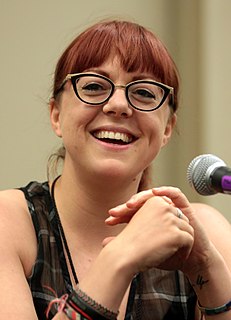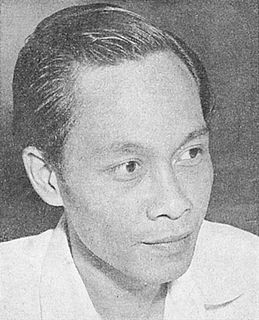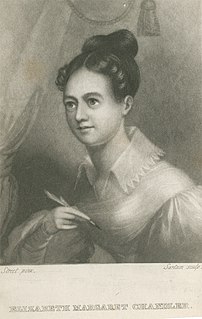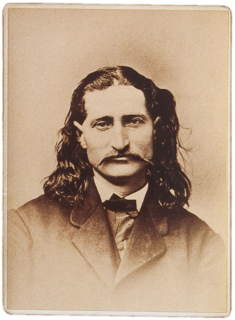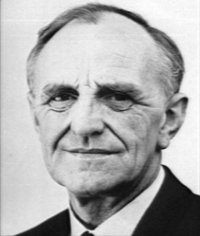A Quote by Saint Francis de Sales
What son would not bring his mother back to life and would not bring her into paradise after her death if he could?
Related Quotes
It wouldn't bring her back. I know. Trust me, I do. And I would have done far worse, he says, if I'd thought there was a way to bring Regina back. I would have traded places. I would have sold souls. I would have torn this world apart. I would have done anything, broken any rule, just to bring her back.
I'll say this again: Her presence would be the best Mother's Day gift I could ever ask for. I know Kate Siegel a big bestselling author now, but I was sliced, no, ripped open from my boobs down to my baby cannon to bring her into this world, all but bathed in her puke for years, and acted as her own personal chauffeur for the first sixteen years of her life.
I want a girl because I want to bring her up so that she shan't make the mistakes I've made. When I look back upon the girl I was I hate myself. But I never had a chance. I'm going to bring up my daughter so that she's free and can stand on her own feet. I´m not going to bring a child into the world, and love her, and bring her up, just so that some man may want to sleep with her so much that he's willing to provide her with board and lodging for the rest of her life.
One of my main wishes in wanting to write about my mother was to explore the impact of her death on my life, explore our relationship, think about the different versions of myself that I was with and without her. I also had the really strong wish to bring her to life for my children, who were born after she was gone.
I mean, her father was an alcoholic, and her mother was the suffering wife of a man who she could never predict what he would do, where he would be, who he would be. And it's sort of interesting because Eleanor Roosevelt never writes about her mother's agony. She only writes about her father's agony. But her whole life is dedicated to making it better for people in the kind of need and pain and anguish that her mother was in.
Such was the love of this grandson for his grandmother that two years after the death of his mother, when she herself fell gravely ill, he vowed to her that someday he would try to tell the world her life story. 'But why?' she asked humbly. 'I'm no one, just a girl from the coast' 'But you are everyone, Grandma,' the young Pramoedya told her. 'You are all the people who have ever had to fight to make this life their own.
You can sail in the desert with a ship of fools. You can smuggle in Moses and his book of rules. But you can't take a mother and give her back her son. What kind of freedom is bought with a gun? People like to build their prison walls when they're afraid to look inside... a thousand points of light are the muzzle flashes in the night. And the freedoms you profess to hold won't bring the dead back from the cold.
If he looked into her face, he would see those haunted, loving eyes. The hauntedness would irritate him - the love would move him to fury. How dare she love him? Hadn't she any sense at all? What was he supposed to do about that? Return it? How? What could his calloused hands produce to make her smile? What of his knowledge of the world and of life could be useful to her? What could his heavy arms and befuddled brain accomplish that would earn him his own respect, that would in turn allow him to accept her love?
It seemed as though he gave way all at once; he was so languid that he could not control his thoughts; they would wander to her; they would bring back the scene,- not of his repulse and rejection the day before but the looks, the actions of the day before that. He went along the crowded streets mechanically, winding in and out among the people, but never seeing them, -almost sick with longing for that one half-hour-that one brief space of time when she clung to him, and her heart beat against his-to come once again.
So much wanting and longing, clutching, desiring, passion and hatred and terrible need. Here, death was suitable, there was room for it, the grip of life's relentless urges slackened, replaced by this icy simplicity. This wasnt her death. It was his. That was the sad and honest truth. Though it would stay with her, it would be more like a black onyx heart on a silver chain, worn privately, under her clothes, close to her body, all her life. The guilt, the beauty, everything. It wasnt over, it had only begun. Well ok then, Okay.
His love for my mother wasn't about looking back and loving something that would never change. It was about loving my mother for everything -- for her brokenness and her fleeing, for her being there right then in that moment before the sun rose and the hospital staff came in. It was about touching that hair with the side of his fingertip, and knowing yet plumbing fearlessly the depths of her ocean eyes.
The mother gazes at the baby in her arms, and the baby gazes at his mother's face and finds himself therein... provided that the mother is really looking at the unique, small, helpless being and not projecting her own expectations, fears, and plans for the child. In that case, the child would find not himself in his mother's face, but rather the mother's own projections. This child would remain without a mirror, and for the rest of his life would be seeking this mirror in vain.
My mother found a way out of a little one-bedroom apartment in Athens, Greece to bring Arianna to Cambridge to study economics and bring me to the Royal Academy in London with very few financial resources and no connections. She didn't know anybody in England, but she found a way. Her love for her daughters and seeing what they could be, motivated her and gave her the chutzpah, the courage, to break down barriers. When you have the motivation of love, you will find the way.

